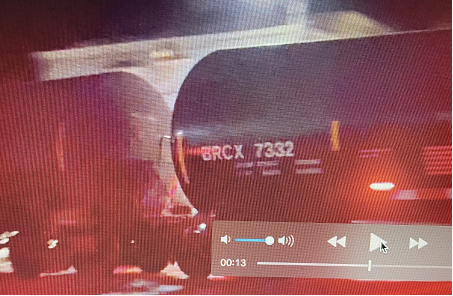Impacts from Hydraulic Fracturing by Headwaters Economics
April 26, 2012The U.S. EPA Official who Oversaw the George W. Bush Administration’s 2004 Study of Hydraulic Fracturing says its Conclusions about Safety have been Exaggerated for Years.
April 29, 2012Residents within a 2.5 mile radius of the well were asked to evacuate.
By Selam Gebrekidan and Joshua Schneyer, Reuters, April 25, 2012NEW YORK, April 25 (Reuters) – Sixty-seven residents have evacuated their homes near a well that had a blowout and leak of natural gas and drilling mud near Douglas, Wyoming, Chesapeake Energy said on Wednesday.
On Tuesday, Chesapeake lost control of the well while installing a steel casing, setting off a leak of both natural gas and oil-based drilling mud, the company said in a statement.
Chesapeake did not specify how much gas or mud leaked, but said air quality measurements in the area were “normal.” The incident did not cause injuries, and Chesapeake said it would seek to “bring the well under control” as soon as safety conditions permit.
Residents within a 2.5 mile radius of the well were asked to evacuate. The cause of the incident was under investigation.
The U.S. Environmental Protection Agency’s regional office said it has not received reports on the leak. The National Response Center, a federal agency that monitors environmental pollution, has not yet issued any report about the incident.
Chesapeake said it disclosed the incident to “all appropriate regulatory agencies.”
The Associated Press cited Local KCWY-TV reports that residents up to six miles away from the stricken well could hear the noise of natural gas escaping from the ground. No explosion or fire has been reported.
Oklahoma City-based Chesapeake is the No. 2 U.S. natural gas driller. The latest incident occurred in the promising oil and gas prospect called Niobrara, which stretches across Wyoming and Colorado.
The loss of well control during drilling is a known hazard, but the boom in on-shore production in shale oil and gas — often near homes and populated areas — has heightened concern about these accidents.
Around a year ago, Chesapeake had a blowout on a well in the natural gas-rich Marcellus shale of Pennsylvania. It took six days to bring under control and triggered a fierce backlash among area residents opposed to the drilling method known as hydraulic fracturing, in which water, sand and chemicals are pumped deep underground to fracture hydrocarbons-bearing shale rock.



